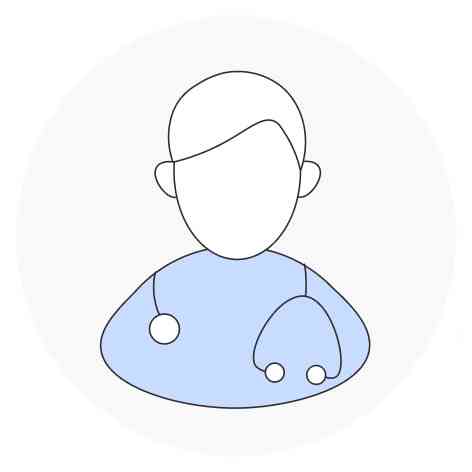Discover advanced Conjuctival Cyst surgery solutions to relieve pain and restore comfort. Our expert team specializes in minimally invasive procedures, ensuring effective treatment for corns and related foot conditions to improve your quality of life.
Book Your Free Second Opinion
30k+
Surgeries Done
50k+
Departments Treated
150k+
Conditions Treated
3k+
Specialist Doctors
200+
Cities
Conjunctival Cyst Introduction
Introduction: A conjunctival cyst is a fluid-filled sac that forms on the conjunctiva, which is the thin, transparent membrane that covers the white part of the eye and lines the inside of the eyelids. These cysts are usually noncancerous and are commonly caused by blocked or irritated glands on the conjunctiva. Symptoms of conjunctival cysts may include the appearance of a new lump or bump on the eye, especially if it causes pain or changes in vision. If you experience these symptoms, it is important to consult a doctor for proper evaluation and management. Immediate medical attention is necessary for severe symptoms. Treatment for conjunctival cysts may involve the use of the PANIS method, which is a safe and effective approach for cyst removal. This method is minimally invasive, low in complications, and can be performed in an office setting. A recent study highlighted the benefits of utilizing plasma technology in ocular surgeries and the positive outcomes of the PANIS method for treating conjunctival cysts.
What You Get From MediBuddy
Get an Expert Second Opinion
Find Top Cashless Hospitals
Find Surgery Cost Estimate
Verify Insurance Coverage
Why MediBuddy For Health Care

Enhanced Quality of Care
Constant support, a network of premium hospitals and top-tier surgeons.

End-to-End Management
Your only focus should be to go and get your procedure done. Leave the rest to us.

Continuous Guidance
Any problem you may face will be resolved with one phone call.

Easy financing support
We bring you the best deals, EMI options without compromising on quality
Types Of Conjunctival Cysts
Conjunctival cysts can be classified into two main types based on their underlying causes: 1. Inclusion Cysts: - Inclusion cysts develop when a portion of the conjunctiva folds over itself, creating a pocket that becomes filled with fluid. - This type of cyst is characterized by the formation of a sac-like structure within the conjunctival tissue. 2. Retention Cysts: - Retention cysts result from the blockage of a small duct within the conjunctiva, leading to the accumulation of cells and fluid sourced from the lymphatic system. - These cysts typically manifest as a result of hindered drainage mechanisms within the conjunctival tissue. Conjunctival cysts, regardless of type, are usually manageable and treatable. While some cysts may resolve spontaneously, others may warrant surgical intervention for removal. It is important to note that most individuals undergoing treatment for conjunctival cysts can expect a full recovery, often experiencing relief from associated symptoms post-treatment.
Diagnosis Of Conjunctival Cysts
Diagnosis of Conjunctival Cysts: Conjunctival cysts are typically diagnosed through a comprehensive eye examination, during which the cyst is visually identified by a healthcare provider. In some cases, further tests may be recommended to confirm the diagnosis and rule out other potential conditions. These additional diagnostic measures may include: - Slit Lamp Exam: A specialized lighted instrument called a slit lamp may be used to examine the cyst in more detail and assess its characteristics. - Visual Acuity Test: This test measures the sharpness of your vision and can help determine if the cyst is affecting your ability to see clearly. - Ultrasound of the Eye and Surrounding Tissues: An ultrasound imaging test may be conducted to obtain detailed images of the eye and surrounding areas, providing valuable information about the size and location of the cyst. - Biopsy: In some cases, a tissue sample (biopsy) may be taken from the cyst to rule out other underlying conditions and ensure an accurate diagnosis. These diagnostic methods help healthcare providers evaluate the nature of the conjunctival cyst and develop an appropriate treatment plan tailored to the specific needs of the patient.
Treatment Options For Conjunctival Cysts
Treatment options for Conjunctival Cysts: - In many cases, small and asymptomatic conjunctival cysts may not require any specific treatment. - At-home remedies such as eye drops might be suggested for mild cases. - If the cyst is symptomatic or causing discomfort, medical intervention may be necessary. - Treatment options include aspiration, which involves draining the cyst fluid, or excision, which involves surgical removal of the cyst. - The recovery time after aspiration or excision can vary based on individual cases. - Follow-up examinations may be recommended to monitor the condition and watch for any signs of recurrence.
When To Consult A Doctor For Conjunctival Cysts
When to Consult a Doctor for Conjunctival Cysts Conjunctival cysts are usually harmless and may not always require immediate medical attention. However, there are certain instances when it is important to consult a doctor for a conjunctival cyst: 1. Persistent Symptoms: If you experience persistent symptoms such as redness, irritation, or a feeling of something in your eye that does not resolve on its own, it is advisable to seek medical advice. 2. Changes in Vision: Any changes in your vision, such as blurry vision or difficulty seeing clearly, should prompt a visit to an eye care provider. 3. Increasing Size: If the conjunctival cyst appears to be growing in size or causing discomfort, it is recommended to consult a doctor for evaluation. 4. Pain or Discomfort: If you are experiencing pain, discomfort, or the sensation of pressure in your eye due to the conjunctival cyst, you should see a healthcare professional for assessment and potential treatment. 5. Recurrent Cysts: Individuals who have recurrent conjunctival cysts may benefit from consulting a doctor to determine the underlying cause and explore options for preventative measures or further management. In these situations, seeking prompt medical attention from an ophthalmologist or optometrist can help diagnose the condition accurately and ensure appropriate management to address any concerns related to conjunctival cysts.
Prevention Of Conjunctival Cysts
Conjunctival cysts are not preventable, as they can occur spontaneously and are typically not related to any specific behavior. However, there are steps that can be taken to potentially reduce the risk of developing conjunctival cysts: - Wearing protective eyewear during activities that may pose a risk of eye injury is advisable. This measure can help minimize the chances of trauma to the eye, which could potentially lead to the formation of conjunctival cysts. - It is recommended to undergo regular eye exams with an eye care professional. Routine eye exams can aid in the early detection and management of conjunctival cysts or any other eye health issues. Detection at an early stage may allow for appropriate treatment and monitoring to prevent complications associated with conjunctival cysts.
Meet Our Doctors

Dr Medha Prabhudesai
Ophthalmology
38 Years
Book Free Consultation

Dr Kavita Rao
Ophthalmology
30 Years
Book Free Consultation

Dr Nita A Shah
Ophthalmology
42 Years
Book Free Consultation
Frequently asked questions


